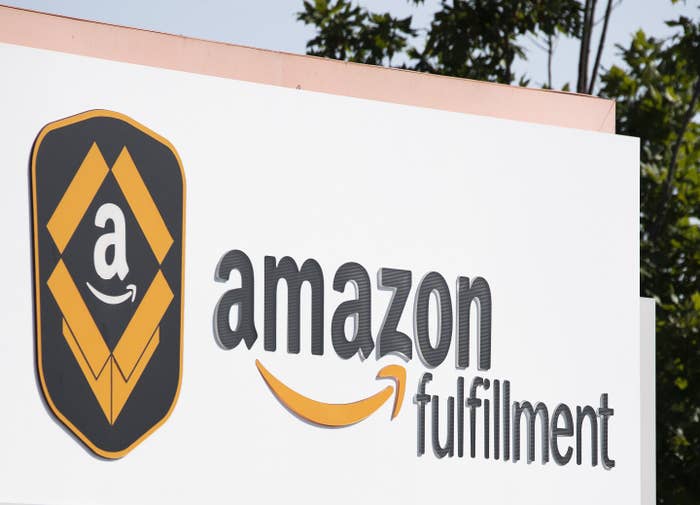Perhaps surprisingly, politicians' promises often do become reality. A study from Queen Mary University of London found that, between 1987 and 2005, 88 per cent of the governing party’s pledges were implemented within the life of the parliament following the election. That’s quite a high strike rate.
If promises aren’t followed through, governments run the risk of being regarded unfavourably by the electorate next time they go to the polls. A party being dubbed ‘untrustworthy’ might make Brenda from Bristol and Suki from South London (and many others) take their votes elsewhere. Additional pressure on parties in power come from the official opposition, who rigorously scrutinise poorly planned bills, and jump on failures quicker than I jump on chances to get out of daily team meetings. Point is, politicians are held to account for promises, because if they’re caught lying, they can expect to be splashed on the front page of the tabloids and become a trending topic on Twitter faster than you can say ‘hashtag fridgegate’. It’s not a tidy nor necessarily even a consistent method of ensuring honesty from people in power, but it is a system that just about works… or it did, until recently.
We’re blasted constantly by the press howling about how the rise of social media is tarnishing proper accountability. Twitter making it harder for people to differentiate between fact and fiction; WhatsApp allowing the spread of false information through undetectable and encrypted channels; Facebook lacking transparency when it comes to political ads, and Pinterest… actually, Pinterest seems pretty much okay. Due to this, candidates running for public office have been able to inflate, exaggerate, or sometimes even outright lie to voters without being held to account. See Boris Johnson promising 40 new hospitals – something that was proved to be false -– but then avoiding the brutally forensic tone of Andrew Neil in a BBC interview. Likewise, Jeremy Corbyn exclaiming nobody under £80,000 would pay more tax if he was elected, yet having a suspiciously expensive spending plan.
Politicians have learnt that, in the digital era, it is in their interest to make bold and outlandish promises because any accountability they will face has been diluted considerably compared to the politicians who were in their shoes ten – or even five – years ago. The lack of risk now associated with overpromising and under delivering is a dream come true for people who want to lead. Unsurprisingly, this trend has been spilling into the business world too.
 |
| What never was: Apple AirPower |
Shareholders and stakeholders who would usually come down on a CEO who was found to be misleading the public, are realising it is in their financial interest to let their leaders make deceptive announcements or issue dubious press releases. They create media attention, drive up the stock price, and the media ‘gotcha’ moment is so minuscule that it is forgotten within a week, if not a day!
Think about it. When was the last time you had something delivered by drone – I’m looking at you, Amazon. Or when was the last time Tesla hit their production targets? Never. In 2018, Google CEO Sundar Pichai proudly bounded onto stage to announce Google Duplex, an AI assistant that could make calls on your behalf to small businesses. A year and a half later, Android’s synthetic voice is nowhere to be heard. This isn’t because Pichai lied. Rather he set expectations too high, only seeing the potential of the idea, not the logistical and ethical challenges he would face. Yet he circumvented any negative consequences.
Sometimes CEOs forgo the opportunity to loudly disappoint the public like Pichai. He made the mistake of announcing Duplex in an open-air theatre in San Francisco, broadcasting to hundreds of thousands around the world. However, CEOs are learning to be far less overt in their big promises. Tech companies are now well versed in filing patents for barmy ideas, as they know all too well that a significant proportion of the media dredge patent applications looking for scoops. Amazon’s flying warehouse, Apple’s vaporiser, Google’s ‘human flypaper’ - I’m not making this stuff up! These companies know what they’re doing and they also know that they’re not going to be penalised for this behaviour. Tech companies especially have taken the ‘big promises, small delivery’ model crafted by politicians and put it on acid.
How CEOs get away with it is not just the result of a lack of media scrutiny and disinterested shareholders. You also need to ask yourself what Elon Musk and Jeremy Corbyn have in common? Leadership cults. For every Corbynite in the world of politics, there’s a Musk fanboy in the world of business.
Whilst at the moment, the benefits of overpromising and under delivering seem to vastly outweigh the drawbacks, the risk lies in the fact that this is likely not a strategy that can be sustained forever. Punters aren’t dumb and will come to see the reality if a company has a track record of poor expectation management. As soon as customers become fed up, stock prices falter, shareholders wise up, and the accountability CEOs have been dodging gracefully for so long, will quickly catch up with them.
Surely, it’s only a matter of time before major statements with minor follow-through action ends very badly for a leader. But in the meantime, it’s a risk they are willing to take.




